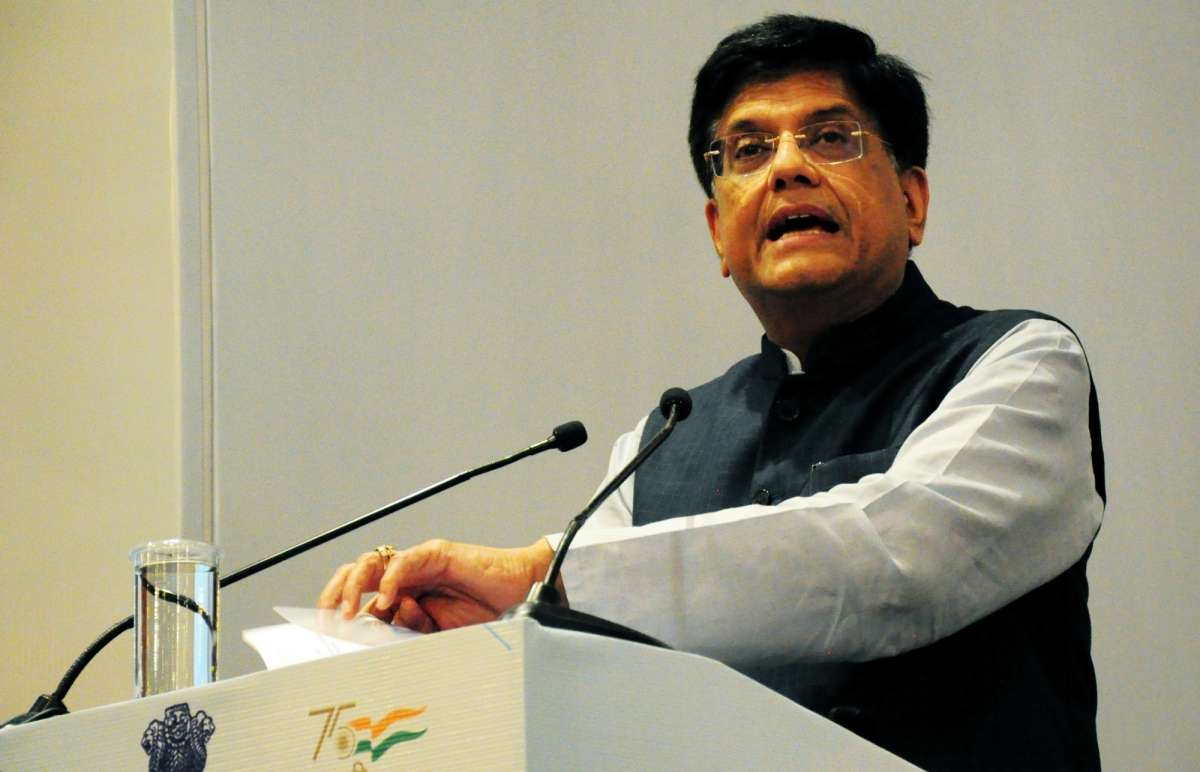Bilateral trade between India and the GCC grew from $87.35 billion in fiscal year 2020-21 to $154.66 billion in 2021-22, registering an increase of 77.06 per cent…reports Asian Lite News
The Gulf Cooperation Council (GCC) has emerged as India’s largest trading partner bloc in the financial year 2021-22 with bilateral trade valued at over US$154 billion, according to India’s Ministry of Commerce and Industry.
India’s exports to GCC countries were valued at approximately US$44 billion and imports at around US$110 billion during the year. At the same time, bilateral trade in services between India and the GCC countries was valued at around US$14 billion. India’s exports in this category, amounted to US$5.5 billion, and imports were worth US$8.3 billion, the Ministry said.
GCC countries accounted for almost 35 percent of India’s oil imports during fiscal year 2021-22 and made up 70 percent of its gas imports. India’s overall crude oil imports from GCC countries during this period were worth about US$48 billion, while liquefied natural gas and liquefied petroleum gas imports in fiscal year 2021-22 amounted to US$21 billion.
Cumulative investments from the GCC in India are currently valued at over US$18 billion, according to the Ministry.
With such a high level of content to the economic relations between the GCC and India, Piyush Goyal, India’s Minister of Commerce and Industry, and Dr. Nayef Falah M. Al-Hajraf, Secretary-General of the GCC, have decided to pursue negotiations on a Free Trade Agreement (FTA) between India and the GCC countries, the Indian government’s Press Information Bureau said.
“Both sides agreed to expedite conclusion of the requisite legal and technical requirements for formal FTA negotiations. The FTA is envisaged to be a modern, comprehensive agreement with substantial coverage of goods and services,” Bureau said.
Both sides emphasised that the FTA will create new jobs, raise living standards, and provide wider social and economic opportunities in India and all the GCC countries.
“Both sides also agreed to significantly expand and diversify the trade basket in line with the enormous potential that exists on account of the complementary business and economic ecosystems of India and the GCC,” it added.

Gulf participation in India’s G20
The UAE participated in the first Framework Working Group (FWG) meeting within the G20 Finance Track, which was held on 16-17 December 2022.
Held for the first time under India’s G20 presidency in Bengaluru, the meeting sought to discuss the work plan for FWG in 2023, which is focused on key global economic issues and the impacts of high food and energy prices and climate change. This is in addition to the group’s objectives related to promoting global economic growth.
The UAE delegation, headed by Ministry of Finance (MoF), emphasised the importance of diversifying the sources of food production globally to enhance the sector’s flexibility on a global scale. The team suggested coordinating the group’s work with international organisations to study financing and operational needs to help developing countries enhance their agricultural production and identify their investment needs in this vital sector – particularly in the technical area to increase production efficiency.
The MoF team also pointed out the need to pursue international coordination through the group to enhance global financial stability, especially during the recovery phase, to mitigate the financial repercussions of the COVID-19 pandemic.
MoF representatives praised the group’s approach for studying the economic effects of climate change, and called on FWG members to coordinate with the UAE in this field in preparation for hosting COP28 next year.

Migrant training
The scheme to “enhance soft skills” of prospective Indian migrant workers to the Gulf in terms of the culture, language and traditions of their destination countries has trained 121,596 overseas job-seekers, the Minister of State for External Affairs, V Muraleedharan, has said.
He told Rajya Sabha, the Upper House of India’s Parliament, in answer to questions from members that “the initiative of Pre-Departure Orientation and Training (PDOT) Scheme has been successful. The Government of India started the PDOT program in 2018.”
Although the PDOT Scheme is accessible to any Indian going to any part of the world for employment, most of those trained are migrants to the GCC countries. This is because the Gulf region attracts the largest number of Indians taking up employment abroad.
The scheme “enhances the intending migrants’ understanding of local rules and regulations in the destination country and sensitizes migrant workers about pathways to safe and legal migration,” Muraleedharan told Member of Parliament K R Suresh Reddy in writing.
Such training in soft skills enables Indians in the Gulf to be model residents in the countries where they live. PDOT training also makes Indian expatriates “aware of various government programmes for their welfare and protection,” the Minister added.

Leave a Reply